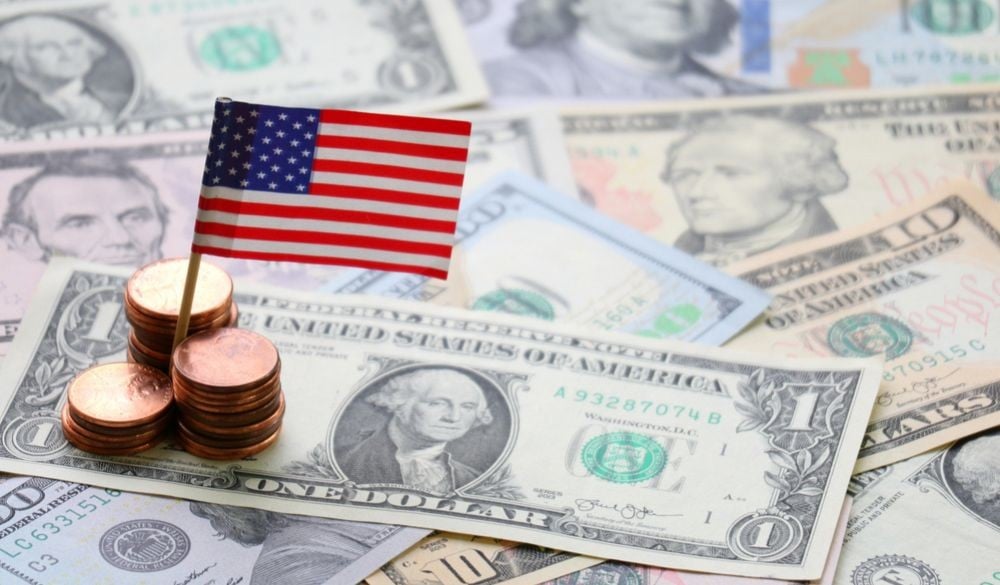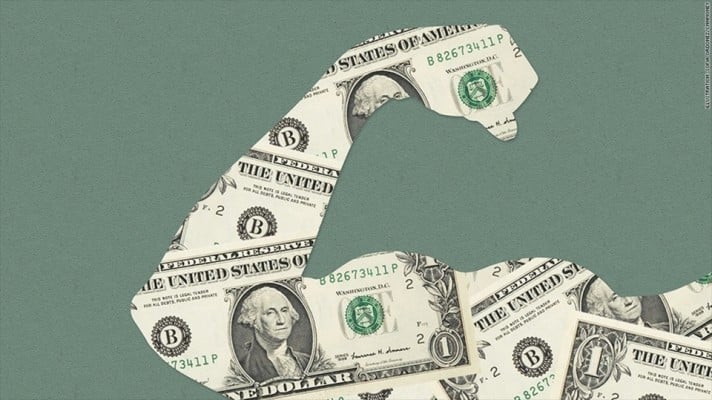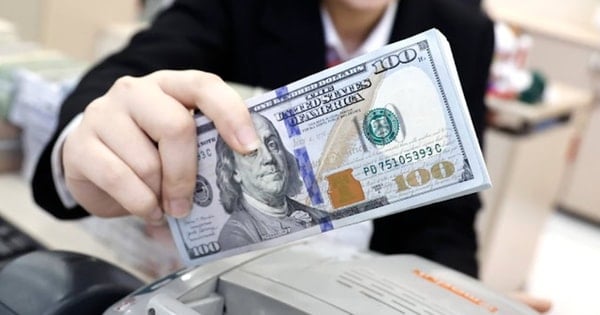 |
| A US default would be a catastrophic event, with unpredictable impacts. (Source: Reuters) |
Catastrophic event for the world
According to the AP , the consequences of a default would quickly reverberate around the world.
“No corner of the global economy is immune if the US government defaults and this crisis is not resolved quickly,” said Mark Zandi, chief economist at Moody's Analytics.
Economist Zandi and two colleagues at Moody's concluded that even if the debt limit were breached for no more than a week, the world's largest economy would weaken so much that it could wipe out about 1.5 million jobs.
The three experts predicted: "If the government's debt situation lasts longer, the consequences will be much more catastrophic. US economic growth will decline; 7.8 million jobs in the country will disappear; interest rates will skyrocket; unemployment rate will increase from 3.4% to 8% and $10,000 billion may be lost in the stock market."
According to Professor Eswar Prasad at Cornell University: "Default would be a catastrophic event, with unpredictable impacts. This event would be more serious for global financial markets and the US."
The White House and House Republicans negotiate over the debt limit and seek a breakthrough.
The threat of a US default comes as the global economy faces a host of other threats – from rising inflation and interest rates to the fallout from the military intervention in Ukraine. On top of that, many countries have become skeptical of the outsized role the US plays in global finance.
In the past, US leaders have often sought to avoid default and raise the debt ceiling before it was too late. Congress has raised, amended or extended the borrowing limit 78 times since 1960, most recently in 2021.
But now the problem is worse. Congress is divided by partisanship, and debt is piling up after years of spending increases and deep tax cuts. On a wall in Manhattan, not far from Times Square, the U.S. debt clock ticks higher every day, from $3 million when it was dedicated in 1989 to more than $31 million today.
Treasury Secretary Janet Yellen has warned that the government will run out of cash reserves, and budget justification, as soon as June 1.
“If the credibility of the US Treasury were to decline for any reason, it would send shock waves through the system and have huge consequences for global growth,” said Maurice Obstfeld, a senior fellow at the Peterson Institute for International Economics.
Is the USD still a safe haven?
Treasury bonds are widely used as collateral for loans, as a buffer against bank losses or as a haven in times of uncertainty and as a place for central banks to store foreign exchange reserves.
U.S. government debt (including Treasury bills and bonds) has a zero risk weight, according to international banking regulations. Currently, foreign governments and private investors hold nearly $7.6 trillion of debt—about 31% of Treasury bonds on the financial market.
Thanks to the important role of the US dollar, it is relatively easy for the US to borrow and finance its growing government debt.
 |
| Debt ceiling issues raise questions about the enormous financial strength of the US and the US dollar. (Source: WSJ) |
Increased demand for dollars tends to make them more valuable relative to other currencies, and that comes at a cost. A strong dollar makes goods in the United States more expensive than in other countries, putting U.S. exporters at a competitive disadvantage.
That's why Washington has had a trade deficit every year since 1975.
According to the International Monetary Fund (IMF), of all foreign exchange reserves held by central banks around the world, the USD accounts for 58%. The second largest is the EUR at 20% and the NDT accounts for just under 3%.
Researchers at the US Federal Reserve calculated that from 1999 to 2019, 96% of trade in the Americas was denominated in dollars. So was 74% of trade in Asia. Outside of Europe, where the euro dominates, the dollar accounted for 79% of trade.
In fact, the US currency is so reliable that merchants in some unstable economies demand payment in USD, rather than their national currency.
Even when a crisis originates in the United States, the dollar remains a safe haven for investors. That’s what happened in late 2008, when the collapse of the U.S. housing market took down hundreds of banks and financial firms, including the once-mighty Lehman Brothers. But the value of the dollar soared.
If Washington breaches the debt limit without resolving the dispute and the Treasury defaults, Zandi predicts the dollar will rise again, at least initially. “Because of the uncertainty and fear, global investors don’t know where to go except where they always go when there’s a crisis, and that’s the United States, the world’s largest economy,” Zandi said.
However, according to experts, the US dollar, although still dominant globally, has "lost ground" in recent years as many banks, businesses and investors have switched to using the euro and yuan. The US's use of the power of the dollar to impose financial sanctions on its rivals has caused concern in some countries.
Yet so far, no obvious alternative has emerged. Neither the euro nor the yuan have been able to replace the greenback in global trade.
Debt ceiling issues will certainly raise questions about the enormous financial strength of the US and the US dollar.
Source



![[Photo] General Secretary To Lam attends the 80th Anniversary of the Cultural Sector's Traditional Day](https://vstatic.vietnam.vn/vietnam/resource/IMAGE/2025/8/23/7a88e6b58502490aa153adf8f0eec2b2)


































































































Comment (0)